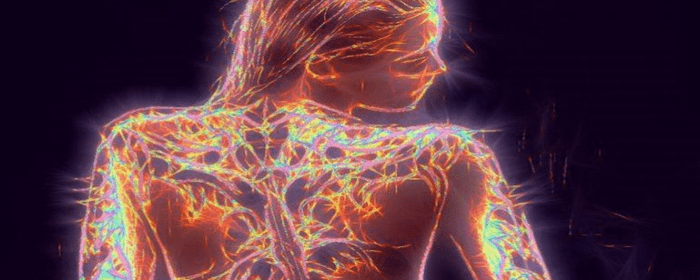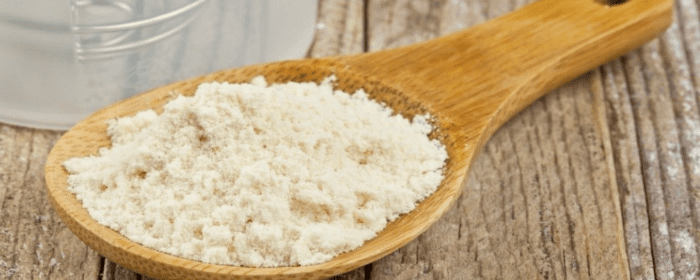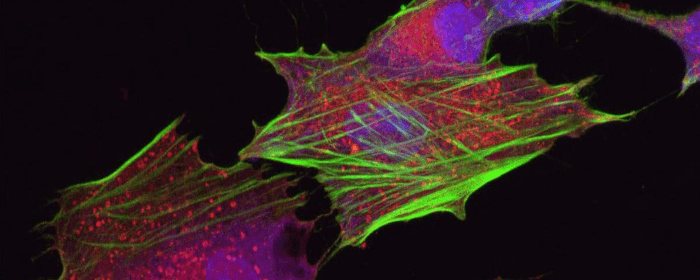
by admin | Aug 3, 2018 | Health Awareness
Fibromyalgia is a chronic condition which causes widespread pain and tenderness either over the entire body or in a migratory pattern. It affects roughly 2 million Americans, and with an 8 to 2 ratio, it is more common in women than men. People of all ages suffer from fibromyalgia, and it can even occur in children.
While symptoms vary from one person to the next, the pain associated with fibromyalgia tends to wax and wane. There is no cure for the condition, but it can be managed through both non-drug therapies and medication. Another way to minimize the impact of the disease is to avoid known triggers. Experts, like those from the American College of Rheumatology, suspect fibromyalgia could be linked with the nervous system. The disease is also seen often in individuals with other long-term illnesses, as well as sleep conditions. With these factors in mind, here are five steps those with fibromyalgia may find helpful in reducing their number of flare-ups.
Avoid Physical/Psychological Stressors
Because fibromyalgia is suspected to be linked to the nervous system, it’s possible that both physical and psychological stress could intensify discomfort. High-intensity exercise aggravates pain in many individuals, while stressful events can also exacerbate symptoms. Stick to moderate or low-intensity activity and avoid known stressful situations whenever possible. For those that can’t be avoided, consider adopting a healthy coping mechanism, such as meditative breathing, to keep stress levels as low as possible.
Reduce or Eliminate MSG in Daily Diet:
Monosodium glutamate (MSG) is a common ingredient found in many foods throughout the U.S. It is the salt of glutamic acid, which is found naturally in mushrooms, cheese, grapes, and tomatoes. The ingredient is also often added to processed foods, including canned vegetables and soups and frozen meals, to enhance flavor. Researchers believe the additive activates neurons which increase sensitivity to pain in fibromyalgia patients. This idea is backed by a study in which patients had complete or near complete resolution of symptoms after eliminating the ingredient from their diets.
Improve Irregular Sleep Patterns
The relationship between sleep and fibromyalgia is a complicated one: while irregular sleep can lead to flare-ups, fibromyalgia pain often disrupts sleep. To further complicate matters, people with fibromyalgia often suffer from other forms of disordered sleep, such as sleep apnea and restless leg syndrome. While sleep problems can be challenging to resolve, breaking this cycle is one change that could help individuals find relief. Maintaining as regular a sleep schedule as possible is recommended, as napping could actually wind up increasing symptom severity. Fibromyalgia patients may also wish to try cognitive behavioral therapy, which is one solution that appears to be effective for achieving better sleep.
Avoid Long Periods of Sitting
Many professionals are accustomed to long periods of sitting throughout the work day. During these bouts, circulation may decrease, which could compound symptoms of fibromyalgia. Increased muscle stiffness and decreased circulation are just two common side effects of hours spent sedentary. Poor posture can cause further damage by cutting off the supply of oxygen the different systems of the body receives. To negate the effects of sitting, it may be worthwhile to consider an ergonomic chair to facilitate better posture. Periodic breaks –short walks for every hour of work, or 20 seconds of standing for every 20 minutes of sitting – could also support better circulation.
Accommodate for Handling Weather Fluctuations
Up to 92% of fibromyalgia patients believe worsening symptoms are a result of weather changes. Unfortunately, seasonal changes and abrupt fluctuations in temperature cannot be avoided altogether. With that said, it may be possible to accommodate these changes to reduce the odds of a flare-up. Staying hydrated in extreme levels of heat and humidity could help, and dressing in layers during unpredictable times of year may allow individuals to stay comfortable in variable conditions.
While fibromyalgia affects everyone in different ways, pinpointing the known triggers for your flare-ups is one of the most effective ways to control the condition. Actively avoiding these aggravating factors may help patients experience fewer and less intense periods of pain.

by admin | Aug 1, 2018 | Health Awareness
Melatonin has long been hailed for its health benefits, and the more researchers study the hormone, the more its broad range of abilities is revealed. Known as “the sleep hormone,” the power of melatonin goes far beyond simply regulating sleep patterns. Scientists believe it could also play a role in managing chronic conditions like heart disease and diabetes, and that it may even promote bone health and reduce obesity. Most recently, it has been discovered that melatonin could help safeguard genetic material and protect against age-related disease and health decline. Here, we take a closer look at how the hormone works to boost wellness.
A Disease-Fighting Hormone
Free radicals are chemically reactive molecules which are linked to a host of diseases, including Parkinson’s disease, Alzheimer’s disease, and cancer. We encounter them on a daily basis, as they are found in everything from the air we breathe to medications and foods. Reducing the volume of free radicals in the body is therefore critical to preventing and managing diseases. One of the ways the body fights off free radicals is through antioxidants, the substances that counteract them.
According to research, melatonin is a potent agent in antioxidative defense. It can enter any bodily fluid or cell and actively scavenge free radicals, and it also has the ability to influence circulation. In addition to fighting free radicals, melatonin can reduce the generation of these dangerous molecules and simultaneously protect critical functions of the cells.
Research also suggests that melatonin’s ability to prevent oxidative damage, specifically in brain cells, make the substance a prime candidate for treating conditions such as Alzheimer’s disease, amyotrophic lateral sclerosis (ALS), Huntington’s disease, stroke, and brain trauma.
Where is Melatonin Found?
Melatonin was first discovered as a hormone of the pineal gland, but it is also produced elsewhere in the body. Specifically, the gastrointestinal (GI) tract is a rich source of the hormone, with its tissues holding 10-100 times as much of the hormone than the blood. The GI tract also has at least 400 times more melatonin than the pineal gland.
Certain types of food are also natural sources of melatonin, including ginger, rice, bananas, barley, sweet corn, and Morello cherries. Additionally, over-the-counter melatonin supplements are available, but it is recommended that anyone considering a supplement regimen consult their doctor. Certain individuals, including women who are pregnant or breastfeeding, may not be advised to take the supplement.

by admin | Jul 31, 2018 | Health Awareness
A healthy diet is important for feeling your best, but for individuals with an autoimmune disorder such as multiple sclerosis (MS), healthy eating plans become even more critical. This is the belief on which the Wahls diet was founded. Developed by Dr. Terry Wahls, the diet implements paleo-style eating to aid in symptom management. Here, we learn more about the eating plan that has helped MS patients and sufferers of other autoimmune disorders manage their conditions more effectively.
How is Diet Linked to Autoimmune Diseases?
Autoimmune disorders are suspected to be caused by low-grade inflammation, or the inflammation that takes place in our cells. Research suggests that a microbial imbalance of gut flora could also contribute to autoimmunity. Eating plans such as the Wahls protocol diet aim to reduce inflammation by eliminating certain food chemicals which could contribute to gut dysbiosis and inflammation in sensitive individuals.
What Does the Wahls Diet Entail?
Like the Paleolithic (Paleo) diet, the Wahls protocol emphasizes the consumption of meat and fish and vegetables. It also encourages fat intake from both animal and plant sources and allows for brightly-colored fruits, such as berries, to be enjoyed regularly.
In order to minimize potential inflammatory agents found in common food sources, the diet is fairly restrictive. For instance, dairy products and eggs are prohibited, along with nightshade vegetables such as eggplant, tomatoes, potatoes, and peppers. Legumes, all grains, and sugars (except for those occurring naturally in fruits) are also restricted.
In recognition of the varying degree of severity in autoimmune disorders, as well as patients’ diverse food preferences and needs, Dr. Wahls has established three tiers of the diet. For instance, Level 3 calls for the elimination of all white-fleshed fruits, while Level 1 requires only the avoidance of all foods containing gluten and dairy.
Does the Diet Really Work?
In patients with MS, following a paleo-style diet has been shown to improve fatigue. Yet, because subjects involved in clinical studies are also typically receiving additional forms of therapy, it is difficult to isolate dietary tactics alone as the primary agent for achieving results. Nonetheless, Dr. Wahls attributes the diet to her own reversal of symptoms. Before she embarked on a healthier eating plan, Dr. Wahls’ muscles had weakened to the point at which she needed a tilt-recline wheelchair. After transforming her diet, she was able to bike nearly 20 miles a day.
While research on the complex ways in which dietary choices impact immune functionality is still ongoing. For patients with autoimmune disorders like MS, talking to doctors about anti-inflammatory eating plans is certainly not a bad idea. Beyond aiding with symptom management, a healthier eating plan could support better wellness outcomes and reduce risks for other serious conditions, such as cardiovascular disease and type 2 diabetes.

by admin | Jul 27, 2018 | Health Awareness, Lupus, Multiple Sclerosis, Parkinson's Disease, Studies
Colostrum is the milk produced by the mammary glands during pregnancy prior to giving birth. It is rich in antibodies that help prevent the newborn from various conditions. Colostrum as compared to normal milk contains a high amount of nutrients and fat, making it highly beneficial.
The most important thing to know about colostrum is that it is not a medication. It is a naturally designed food that maintains the health and prevents conditions. Colostrum is effective for shutting down the onset of conditions and infections, which helps the body to repair itself and allows the individual to enjoy a healthy and radiant life.
Colostrum is the Key to Gut Health
Colostrum is the source of everything that is required to maintain a healthy gastrointestinal tract. It is known that most of our conditions take birth in the gut and proper absorption of nutrients is the key to great health. It is one of the primary function of colostrum to maintain a healthy gut, which is the basis of the overall healthy body.
When the beneficial bacteria present in our intestine is outnumbered by the harmful bacteria then our gut is said to be out of balance. This imbalance has many consequences, one of which is the leaky gut syndrome.
Leaky gut syndrome is a condition due to which various pathogens and toxins pass through the lining of the gut and move freely in the body, this leads to various conditions. Leaky gut syndrome, if not treated can be a life-threatening condition.
Colostrum is an optimal treatment for treating leaky gut syndrome because it has growth factors that help repair the damage of the intestine to normal. It is also rich in immunoglobulins that control the pestering of fungi and bacteria in the body. In various conducted studies colostrum has successfully increased the surface area of the lining of the intestine, thereby improving the absorption of nutrients.
Colostrum: The Perfect & Functional Food
Looking at all the immune and growth factors that are present in colostrum, it is called the best alternative to pharmaceutical drugs, from steroids and antibiotics. Colostrum is also safe for people suffering from lactose intolerance and has no allergic reactions or side effects.
A functional food is one that has potential health benefits compared to normal food and is high in nutrients. Colostrum is high in nutrients and can be combined with other food products. It is most effective when taken on an empty stomach. Available in the form of capsules, colostrum is more effective and bioavailable.
Colostrum for Autoimmune Conditions:
Autoimmune conditions are those in which the body starts producing antibodies against itself. Colostrum has shown to be highly effective to treat autoimmune conditions like Lupus, Parkinson’s disease, and Multiple Sclerosis. Chemokine receptors have been observed to be the cause of the development of all these conditions. Colostrum produces antagonists of these receptors and has been shown to decrease the symptoms of many common autoimmune conditions.
Colostrum Used as a Topical Application:
Colostrum, if applied externally can help heal the burns, acne, cuts and various abrasions and even surgical cuts. If applied orally, it can help deal with sensitive teeth relieve canker sores and gingivitis.
Some Overall Benefits of Colostrum are:
Anti-inflammatory
Anti-aging
Anti-fungal
Anti-bacterial
Cancer
AuAutoimmuneondition
Blood pressure
Cholesterol
Sugar levels
Diabetes
Digestion
Flu prevention
Fat reduction
Heart health
Gut health
Immunity
Joint repair
Immunity
Mobility
Muscle repair
Pain
Stamina
Tissue repair
Wound healing
Weight loss
Inflammation
Below is a list of some common conditions for which colostrum can be effective:
Allergies
Anemia
Arthritis
Autoimmune conditions
Asthma
Bacterial infection
Bone marrow transplant
Cancer
Alcoholism
Allergies
Anemia
Arthritis
Crohn’s disease
Chronic fatigue
Diarrhea
Fibromyalgia
Food poisoning
Heart disease
Hepatitis
Influenza
Intestinal bowel syndrome
Joint repair
Leaky gut
Lupus
Multiple sclerosis
Osteoporosis
Obesity
Premature birth
Osteoporosis
Ulcer
Yeast infection
Viral infection
Where Can I Find Colostrum?
If you have any symptoms suggestive of gastro-intestinal dysbiosis (diarrhea, constipation, bloating, reflux, stomach discomfort or pain) then you should seek further work-up by your physician or a Functional Medicine Doctor.
In the meantime, it is recommended to start using Bovine Colostrum which can be found at Sovereign Laboratories at www.mysovlabs.com. Simply mix 2 tablespoons in 6oz of water and consume twice per day on an empty stomach. This product is full of gut healing immunoglobulins. Use for 2-3 months should result in significant improvement.
In addition, it is also recommended to take a good probiotic while using your bovine colostrum. Vitamin D levels should be optimized to levels between 80-100.

by admin | Jul 25, 2018 | Bone Marrow, Health Awareness, Stem Cell Research, Stem Cell Therapy
Stem cells derived from bone marrow, or hematopoietic stem cells, are a topic of significant debate in the medical community. While they have exhibited significant potential for benefiting people with both cancerous and noncancerous diseases including immune deficiencies, not all methods for administering bone marrow are created equal. While intra-articular injections of bone marrow are more common and considered safer, intravenous methods pose serious risks, which are explored here.
Intra-articular injections involve injecting bone marrow directly into the compromised joint, whereas intravenous methods entail infusing bone marrow stem cells into the body through the veins. Intra-articular injections have shown promise in treating conditions such as osteoarthritis (OA) in joints such as the knee and has proven to achieve pain relief for moderate-to-severe cases of osteoarthritis.
Intra-articular treatments are localized, so the injected bone marrow is already in its target location upon being administered. According to research, this form of therapy is generally considered to be safe. In intravenous bone marrow transplants, however, there are serious risks associated with treatment. Bacterial infections are common, while viral and fungal infections can also occur and cause life-threatening conditions, such as organ failure.
Risk factors for developing any complication associated with intravenous bone marrow transplantations vary based on a number of factors, including the patient’s age, genetics, and type of disease being treated. With that said, due to its limited risks, intra-articular bone marrow methods appear to be the safest form of treatment currently available. Although each patient will need to discuss risk factors alongside potential benefits with his or her physician, oftentimes the risks appear to outweigh the potential benefits.
There are alternative therapies with fewer potential side effects which may be explored such as Adipose and Umbilical Cord-derived stem cells. These regenerative medicine treatments not only can treat osteoarthritis and sports-related injury conditions, but have also shown positive results in treating neurological conditions such as Multiple Sclerosis, Parkinson’s disease, Post-Stroke, and Traumatic Brain Injuries (TBI).






 St. Petersburg, Florida
St. Petersburg, Florida
